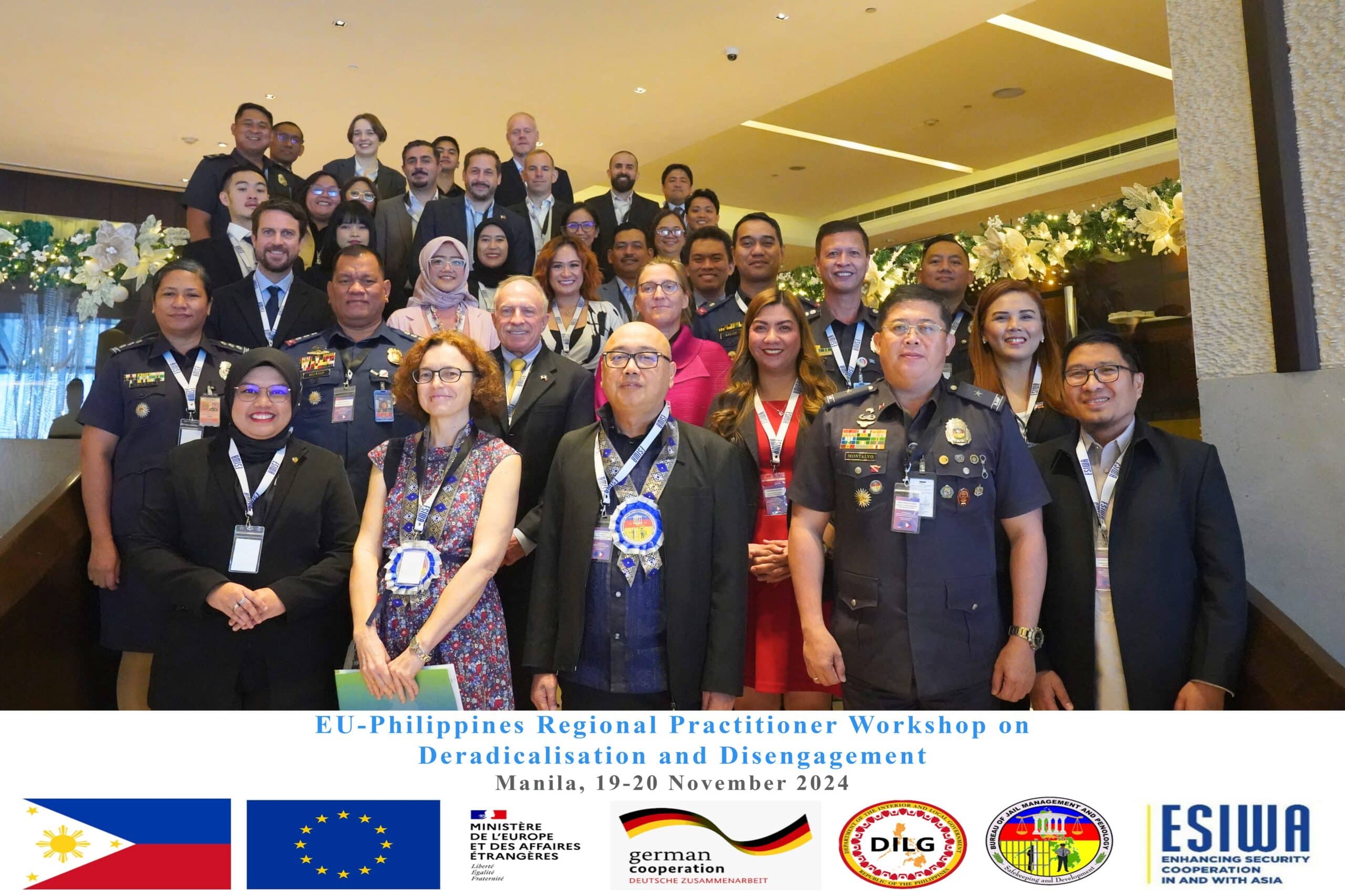PH, EU partner to counter radical views among terror-linked inmates

Delegates from the Philippines, Germany, Indonesia, Malaysia, and Thailand participate in a two-day workshop in Manila, Philippines, focused on deradicalizing inmates linked to terrorism, held on November 19 to 20, 2024. Photo courtesy of the European Union
MANILA, Philippines — To address the challenges of deradicalizing inmates linked to terrorism cases, the Philippines and the European Union (EU) held a two-day workshop in Manila on November 19 and 20, 2024.
The activity, under the EU’s Enhancing Security Cooperation in and with Asia and the Indo-Pacific, or the ESIWA+ project, gathered counterterrorism practitioners from the EU and Indo-Pacific region.
Participants included prison officers, deradicalization counselors, and counterterrorism police from the Philippines, Germany, Indonesia, Malaysia, and Thailand.
READ: Political prisoners assail reported transfer plan to isolation cells
Ana Isabel Sanchez Ruiz, deputy head of the EU Delegation to the Philippines, said in a statement that the initiative aims to improve strategies for rehabilitating extremists by sharing experiences and emerging best practices across various countries.
“I’m sure that by discussing what works for them, crucially, what has not worked so well, each person will come away with both fresh ideas and new professional connections,” Ruiz said.
She further underscored that presentations from the workshop, as well as group work activities, will serve as a foundation for drafting guidelines on deradicalization within the Philippine jail system.
Ruiz assured that the draft guidelines will align with the Bureau of Corrections’ ongoing initiatives to ensure consistency and continuity in efforts to rehabilitate inmates linked to terrorism cases.
READ: Indonesia frees radical cleric linked to Bali bombings that killed 202
Meanwhile, Interior Undersecretary for Public Safety Serafin P. Barretto Jr. emphasized the importance of strengthening regional and international collaboration in managing extremist detainees.
“In an increasingly interconnected world where security and stability challenges know no boundaries, our collaboration is not only valuable but essential,” Barretto said.
The workshop was conducted in cooperation with the Bureau of Jail Management and Penology (BJMP), under the supervision of the Department of the Interior and Local Government.
It included a site visit to jails managed by the BJMP, allowing visiting practitioners to witness first-hand the country’s approach to handling inmates associated with violent extremist networks.